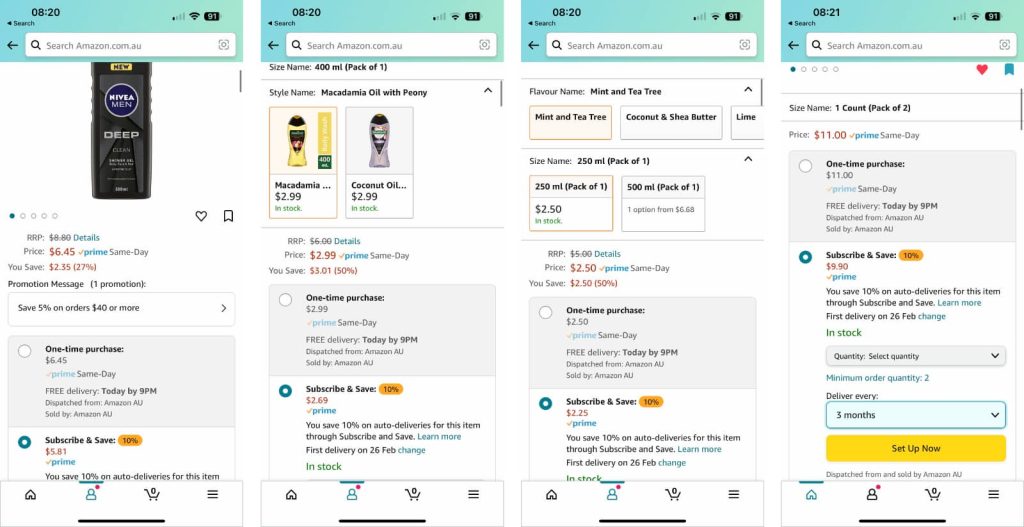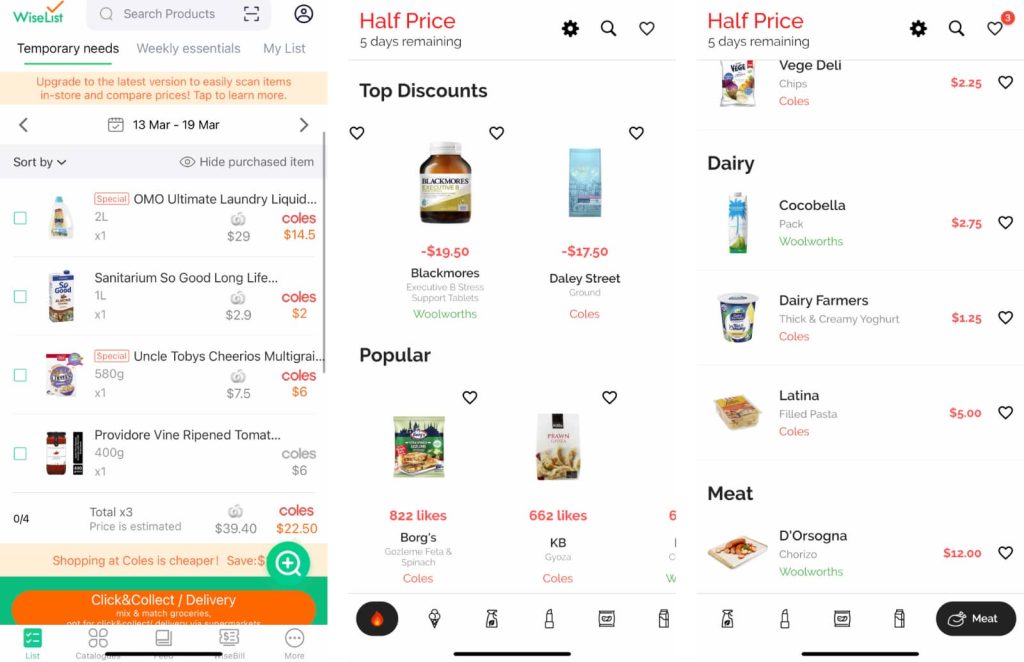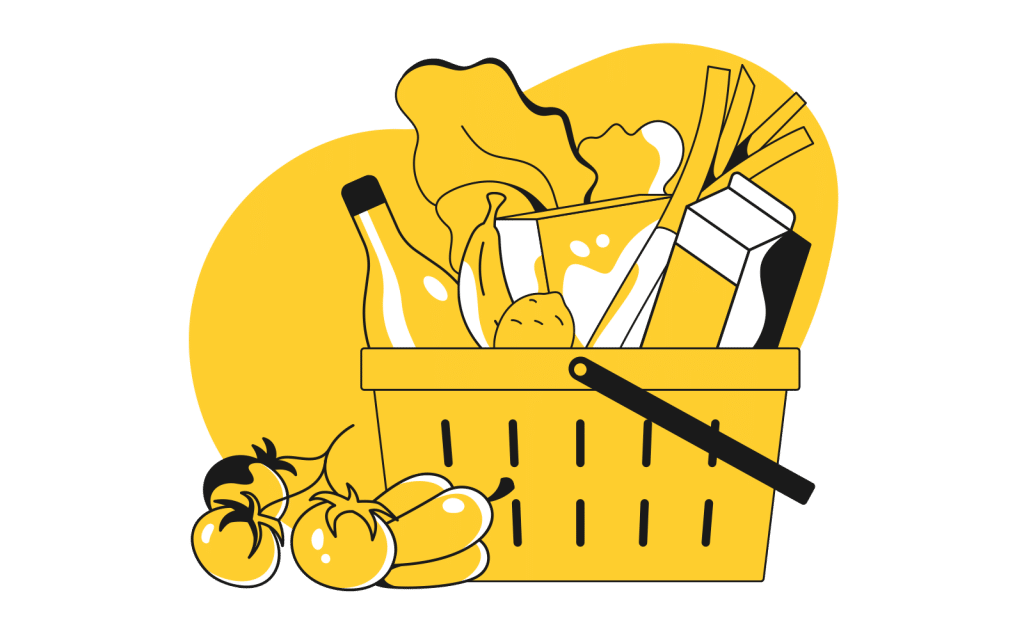As the cost of living increases begin to bite, saving money where you can matters more, and there are a few ways you might be able to do just that.
It’s a frustrating state of the world when you know that your dollar doesn’t buy you as much as it once did. Home owners know this all too well with the burden of rate rises, but it’s a problem everyone is enduring, and you can see it at your supermarket right now.
If you can cast your memory back to how things used to be, you might recall that prices were better in previous years, and with an attempt to curb inflation happening, the major supermarkets are pushing prices higher already.
It’s not just in Australia, but the world over, with people living in the UK struggling amidst higher grocery prices and much the same in America, too. Frustratingly, it’s even worse in other nations, as food prices bite the world over from inflation.
Supermarket prices may end up getting worse before they get better, with Nestle’s Australian boss revealing more price increases were coming this year, and it likely won’t be just down to that company, either.
In the past few weeks, we’ve already seen supermarkets shave volumes of food, dropping from 1.3kg of schnitzel to 1.2kg for the same price, and cutting less fish in your prepacked salmon from 470g to 460g. Milk costs more, bread costs more, eggs cost more, and if you haven’t read between the lines yet, the moral of this story is that in 2023, everything costs more.
So if everything costs more, what can you do to keep your costs down as much as possible?
Buy in bulk
One of the more obvious ways to save on goods you need starts to become more apparent when you look at the costs in store. The smaller the package, the more per unit something can cost, so consider looking at the bigger amount.
While one kilogram of potatoes might cost four dollars, two kilos might cost seven, and the same is true for other things. In the meat aisle, Australian shoppers can regularly find 1kg of 4-star beef mince for $13, compared to two packs of 4-star beef mince for $7 each.
Plan meals for a week or longer
Buying in larger amounts comes with the caveat of needing to spend a little more to get that saving, but you also may want to plan your meals in advance for a week to know what you’re doing with the rest of what you’re buying.
To do that, grab a small calendar or a print out with spots for seven days, and plan what you’re going to eat for that time. You can start with a week, but depending on how frugal you want to be, you might be able to plan for an entire month.
See if you can stretch out the meals for two or three days, alternating what they are. Half a kilogram of beef can be used for a burger night for the family, with the other half used for a spaghetti bolognese that lasts two nights. That’s three nights of food from one kilogram of beef, the same one kilo of meat we mentioned earlier.
If you’re struggling to make the most of all that extra everything you’re buying in bulk, consider making a few meals and freezing them. Some frozen food will last longer than others, but doing something with them means you can make the most of everything you buy, rather than just randomly throwing it out.
Consider subscriptions on items to save big
We’ve mentioned buying in bulk first, but it has a lot to do with our next tip: consider looking for a subscription on that good.
Services such as Amazon can offer subscriptions to specific products that end up saving you money because you’re buying in bulk, and can lower the price as time goes by.
For Amazon, a subscription can be found for lots of items, and basically means you’ll be charged at an interval you set for that item to arrive at your door. It could be as little as a week and as much as several months, and you can cancel it at any time.

While Amazon Australia doesn’t have a whole lot in the way of food subscriptions, you may want to consider it for shopping items normally used in the bathroom or laundry, with bulk shower gel and laundry detergent often able to save as much as half on what you’d normally pay.
It’s especially useful for parents, with subscribers to Amazon Prime also getting discounts on baby-related purchases, which comes in handy when you’re buying nappies.
With a price drop on bub-related essentials, nappy costs in bulk can drop from being close to hundred dollars per month to around 60, which not only saves a lot, but can arrive without you needing to think about it.
Look for price comparison apps
Your phone can be another way to save on goods, and not just because you may want to budget better using a quick budget explaining app.
Consider an app that can help you compare prices between supermarkets on items that are commonly found in each. It means home brand items like your Woolies or Coles mince isn’t going to find much competition, but anything else with a brand — Uncle Toby’s, Sanitarium, Nestle, Coca Cola, whatever — can be compared.
Frugl is one worth checking out, as is WiseList, both of which offer grocery price tracking for iPhone and Android, and may give you a notification when items you regularly rely on come down in price at the major shops near you.

Farm-fresh fruit and veggies last longer
While your supermarket might provide the best fruit and veg you know, it can expire a little faster than you may expect. You might know this all too well if those strawberries become soft and decayed a little too quickly after purchase, and if tomatoes and other vegetables begin to break down quickly.

So instead of buying fruit and veggies from your regular supermarket, consider your local fruit and veg shop, or alternatively a service that delivers farm-fresh goods to your door.
In Sydney where simplsaver is made, that includes the likes of Delish, Good & Fugly, and Hillview, and countless others who cater to bringing customers produce that doesn’t need to face the freezer before arriving at a home to be eaten.
It might sound crazy, but with produce being a seasonal thing, fresh produce from the farm is less likely to be covered in wax to keep it clean and actually picked when it is in season. Fresh can mean a lot of things for suppliers, but for farm fresh produce services, fresh typically means a recent pick.
Throughout the Covid-19 pandemic, this writer turned to farm fresh services for fruit and vegetables to find they lasted longer in general. While bananas would age at typical rates, greens such as spinach, rocket, and lettuce would last up to two weeks compared to the days their supermarket equivalent would do, while fruit seemed like it lasted longer, as well.



